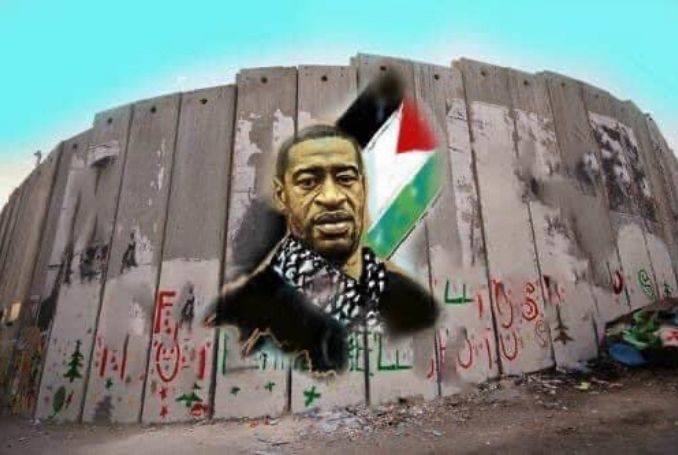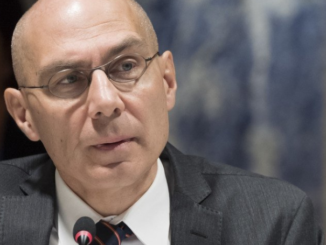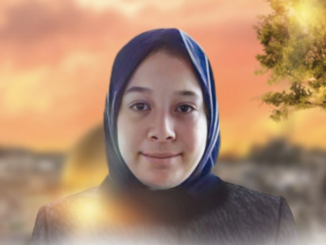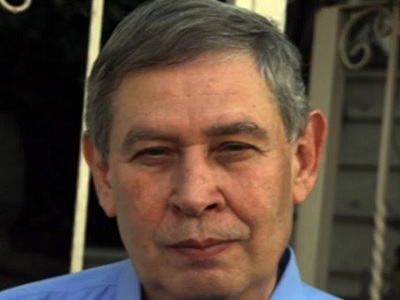
By Benay Blend
Since the murder of George Floyd by the Minneapolis police, his name has (or should have) become a household word. When Mawusi Ture, an activist with the Black Alliance for Peace (BAP), asked if I would write about a similar incident, I was embarrassed that I had to look up the particulars of the case. John Neville also died in police custody, his last words were those of Floyd: “Let me go.” “Help me up.” “Mama.” “I can’t breathe.”
Neville’s death, and others like it both in America and Occupied Palestine, bears mention beyond the tragedy of this man. The circumstances of his final moments are indicative of the systemic racism embedded in America’s policing and in Israel where many of our police are trained
On December 1, 2019, guards booked John Neville into the Forsyth County jail in Winston-Salem, North Carolina. Reporting for the New York Times, Michael Levenson summed up the subsequent events. About 24 hours after his arrest, Neville fell from his top bunk onto the concrete floor. After what appeared to be a seizure, detention officers and a nurse moved him to another cell for observation.
In reality, he was left restrained on his stomach, calling out for help, much like George Floyd. Two days later he died from a brain injury due to cardiac arrest, which in turn was caused by asphyxia during a prone restraint.
In early July, five former detention officers and the attending nurse were charged with involuntary manslaughter in the death of John Neville, yet another Black man who called out “I can’t breathe.”
“Good men and women made bad decisions that day and, as a result, a good man died,” the Forsyth County sheriff, Bobby F. Kimbrough Jr., whose office runs the county jail, said at the news conference.
However, this case was not about good cops who make bad decisions, but rather systemic racism that has long been embedded in America’s policing. As Levenson observes, the charges were the newest in a long string of similar incidents that have inspired global protests against police brutality due to systemic racism in the force.
Over the past ten years, The New York Times found at least 70 people have died at the hands of the police after reiterating Floyd’s words: “I can’t breathe.” On an interactive page, the Times recorded all the words, that of the victim but also the victimizer’s failure to respond, that were said at the time of death.
After the death of George Floyd, videos surfaced of Israeli police performing the same knee-on-the- neck procedure with Palestinians that was responsible for Floyd’s demise. According to Sheren Khalel, the images have renewed concerns about programs that send American police to train under Israeli military forces.
Neighboring Durham, North Carolina’s City Council voted two years ago to bar its police department from engaging in “military-style training” programs abroad. While there seems to be no documentation specific to Winston-Salem, Khalel notes that North Carolina remains one of many states that participates in what Jewish Voice for Peace has labeled Deadly Exchange.
Palestinian Americans had long drawn comparisons between the US and Israeli use of tactics. Palestinians, too, quickly showed support after the murder of George Floyd, partly because of their own long history of oppression at the hands of Israeli cops.
Indeed, on July 8, Middle East Monitor (MEMO) reported that a Palestinian prisoner detained in Israeli jails had died of “medical negligence,” in much the say way as John Neville. In Saadi Al-Gharably’s case, a local NGO conveyed that Al-Gharably had suffered from prostate cancer, diabetes and blood pressure, none of which received medical attention during his time in prison.
Referring to a report from the Media Office of the Palestinian Prisoners, MEMO related that around 222 Palestinian detainees are said to have died in Israeli prisons, while over 5,500 Palestinians are currently held in Israeli jails where they are now even more at risk from the Covid-19 virus.
Shortly after Floyd’s death, Mohammad al-Qadi, a Palestinian marathon runner from the Occupied West Bank tweeted several pictures showing Israeli police using the same chokehold on Palestinians that had been employed on Floyd. “Crazy how the same thing happens in Palestine but the world chooses to ignore it,” al-Qadi captioned, describing with some anger the world’s indifference to suffering in his country.
What does it take to ignite an uprising that draws awareness to injustice? In occupied Palestine, it was the burning alive of Mohammed Abu Khdeir, 16, by three young Israeli settlers that called attention to the 2014 war on Gaza. In America, the murder of George Floyd sparked protests that continue on today.
Both events were watersheds, a spark after decades of Occupation in Palestine and centuries of the same in the United States. Such tragedies need to be put into historical context. Without that kind of grounding, movements that are organized around one event, like for example the anti-war campaign during Vietnam, run the risk of losing momentum when the original galvanizing force is gone.
Other pitfalls, too, could be avoided by placing each victim of police brutality within a timeline. For example, there have recently been important analyses on the tendency of brands and corporations to commodify Black lives. “As brands all over the world are taking a stand,” writes Leonie Annor-Owiredu, the questions should be: “where were you then, why now, and for how long will you take a stand?”
“Brands must be willing to take on struggles,” she continues, “instead of simply supposing/announcing themselves to be allies to the cause.” Context also plays a part in highlighting the Wall of Moms, a group that Dani Blum observes first started at the Portland protests but more recently have mobilized collectives across the country. Arm-in-arm, they have formed human shields between protestors and federal agents.
While admirable, McKensie Mack noted in a Facebook post that Black mothers in Englewood have been protesting violence in their community for years by creating a wall of justice around it in the same way as the Wall of Moms, by using their bodies as a shield. “We have a history,” Mack reminds her readers. “Let’s honor it. Let’s tell it right.”
By placing targeted groups—whether Palestinians or African Americans—at the center of their struggles, by placing those movements within historical contexts, there is a continuity that is less likely to be commodified by opportunists who soon move on to the next thing when they get tired.
It also makes clear that certain communities have entire systems and structures set against them. George Floyd and Mohammed Abu Khdeir were not one-time tragedies, but rather the latest in an entire history of atrocities meted out by settler-colonial states.
“The revolution won’t be sustained in diversity schemes,” Annor-Owiredu warns. It requires structural changes to bring about real justice.
Palestinians and people of color understand the importance of narration from below. In the words of journalist Ramzy Baroud, such history must rely on “the collective memory of the Palestinian people,” an accounting that defines “what it means to be Palestinian…what they stand for as a nation, and why they have resisted for years..”
– Benay Blend earned her doctorate in American Studies from the University of New Mexico. Her scholarly works include Douglas Vakoch and Sam Mickey, Eds. (2017), “’Neither Homeland Nor Exile are Words’: ‘Situated Knowledge’ in the Works of Palestinian and Native American Writers”. She contributed this article to The Palestine Chronicle.

– Benay Blend earned her doctorate in American Studies from the University of New Mexico. Her scholarly works include Douglas Vakoch and Sam Mickey, Eds. (2017), “’Neither Homeland Nor Exile are Words’: ‘Situated Knowledge’ in the Works of Palestinian and Native American Writers”. She contributed this article to The Palestine Chronicle.







